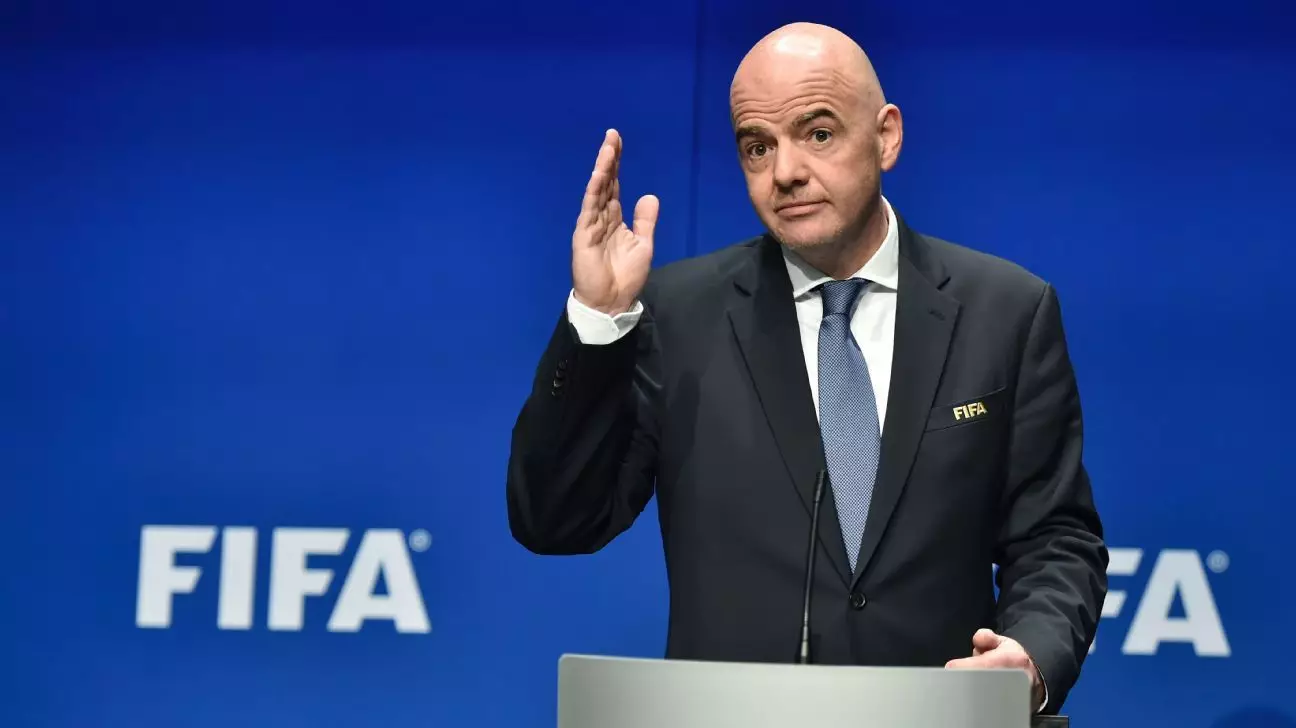FIFA has recently come under fire for its decision to add new and larger competitions to the already congested calendar of men’s international football. In a scathing letter sent by the global players union FIFPRO and the World Leagues Association, FIFA is criticized for making unilateral decisions that primarily benefit its own competitions and commercial interests. The letter warns of legal action from players and national leagues if FIFA does not backtrack on its plans to expand competitions. This move has been described as “inherently abusive” by the unions, as it puts undue pressure on players and leagues to adapt to the changes imposed by FIFA.
One of the key demands made by FIFPRO and the World Leagues Association in the letter is to reschedule the revamped Club World Cup, which is set to take place in the United States in June 2025. The tournament, which includes top clubs like Real Madrid, Borussia Dortmund, Manchester City, and Bayern Munich, is seen as a test for the upcoming 48-team, 104-game men’s World Cup scheduled to be held in the U.S., Canada, and Mexico one year later. The unions have urged FIFA to reconsider its decision regarding the Intercontinental Cup scheduled for December, involving the same continental champions participating in the Club World Cup six months later. Additionally, there is a call for talks to reopen on the FIFA-managed calendar through 2030 to address the concerns raised by clubs about releasing players for national team games.
Player Workloads and Domestic Schedules
The expansion of UEFA’s club competitions has also added to the strain on players, with teams in the Champions League and Europa League set to play additional games in the upcoming season. This extended schedule is expected to increase the workload on players and pose significant injury risks. FIFPRO and the World Leagues Association have highlighted the adverse impact of the fixture squeeze on the welfare and fundamental rights of players, as well as its implications on the ability of leagues to organize effectively.
While FIFA has projected a substantial increase in revenue from 2023-2026, the decision to further expand competitions like the Club World Cup and secure lucrative sponsorships, such as the recent deal with Saudi Arabian state oil firm Aramco, has raised eyebrows. The influx of money from these ventures has been touted as essential by FIFA president Gianni Infantino to improve the competitiveness of teams from regions outside Europe and South America. However, critics argue that the pursuit of financial gains should not come at the expense of player welfare and the integrity of the sport.
The push for more games and expanded competitions in men’s international football by FIFA has sparked controversy and drawn sharp criticism from players, leagues, and unions. The concerns raised about the impact on player welfare, domestic schedules, and the commercial interests driving these decisions must be addressed by FIFA to ensure the long-term sustainability and integrity of the sport. Failure to do so risks alienating key stakeholders and undermining the trust and credibility of the governing body.

Leave a Reply